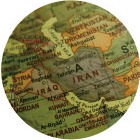
Buy fake PMI Certificate, Buy fake Certificate, Launched in 1984, PMI’s first credential was the PMP. It has since become a de facto standard certification in project management. In 2007 it earned the ANSI/ISO/IEC 17024 accreditation from the International Organization for Standardization (ISO). As of May 2020 over one million people held the PMP credential.
PMI later introduced other certifications. Credential holders do not have to be members of PMI.
To initially obtain a PMI credential, candidates must first document that they have met the required education and experience requirements. They must then pass an examination consisting of multiple-choice questions. To maintain most PMI credentials, holders must earn Professional Development Units (PDUs), which can be earned in a variety of ways such as taking classes, attending PMI global congresses, contributing to professional research or writing and publishing papers on the subject. Most credentials must be renewed every three years. These are the certifications and credentials offered by PMI:
1984: Project Management Professional (PMP)
2003: Certified Associate in Project Management (CAPM)
2007: Program Management Professional (PgMP)
2008: PMI Scheduling Professional (PMI-SP)
2008: PMI Risk Management Professional (PMI-RMP)
2011: PMI Agile Certified Practitioner (PMI-ACP)
2014: PMI Professional in Business Analysis (PMI-PBA)
2014: Portfolio Management Professional (PfMP)
2020: PMI Project Management Ready
2020: Disciplined Agile Scrum Master (DASM)
2021: Disciplined Agile Senior Scrum Master (DASSM)
2021: Disciplined Agile Value Stream Consultant (DAVSC)
2021: Disciplined Agile Coach (DAC)
PMI also provided a Certified OPM3 Professional credential which was officially discontinued on March 1, 2017. PMI no longer allows use of the credential’s designation by individuals who formerly obtained it. OPM3, even though no longer neither a credential nor a publication, remains a registered mark of PMI.
















